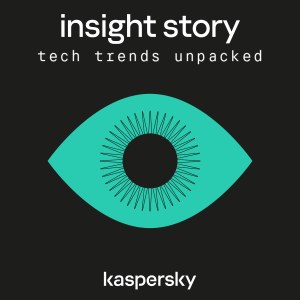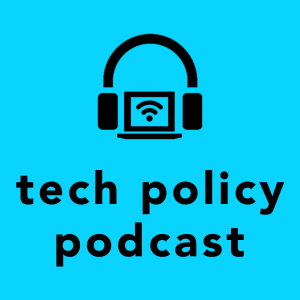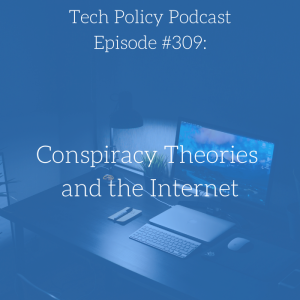Is social media accelerating the spread of conspiracy theories? It sure feels like it: look at anti-vaxxers, claims about election fraud, and QAnon. Professor Joseph Uscinski, a political scientist at the University of Miami, argues that this widespread hunch is not supported by the evidence. He and host Corbin Barthold examine that view, with a focus on what polling data says about the prevalence of conspiracy theories over time. They also discuss how the Internet affects public opinion (or not), when conspiracy theories become dangerous, how people should form beliefs, whether birds are real, whether King James II fathered a “warming pan baby,” and more.
More Episodes
#324: Parler Games
 2022-07-11
2022-07-11
 870
870
#323: Florida & Texas vs. the Internet
 2022-06-29
2022-06-29
 838
838
#322: FTC Commissioner Noah Phillips
 2022-06-02
2022-06-02
 911
911
#321: Musk’s Moderation Musings (And Beyond)
 2022-05-24
2022-05-24
 764
764
#320: The Right and Social Media
 2022-05-17
2022-05-17
 744
744
#319: Remember FAANG?
 2022-05-10
2022-05-10
 763
763
#318: The Universal Service Fund
 2022-04-27
2022-04-27
 699
699
#317: Making Progress
 2022-04-12
2022-04-12
 762
762
#316: Putin’s War and the Internet
 2022-03-31
2022-03-31
 820
820
#315: Social Media “Transparency” as First Amendment Violation
 2022-03-24
2022-03-24
 887
887
#314: The State of Internet Freedom
 2022-03-15
2022-03-15
 865
865
#313: Responding to the Broadband Populists
 2022-03-03
2022-03-03
 817
817
#312: Web3
 2022-02-22
2022-02-22
 905
905
#311: Administrative Law, and Why You Should Care
 2022-02-03
2022-02-03
 817
817
#310: Algorithmic Amplification
 2022-01-20
2022-01-20
 970
970
#308: All Eyes on the FTC
 2021-12-21
2021-12-21
 975
975
#307: Complexity Theory in One Lesson
 2021-12-14
2021-12-14
 916
916
#306: The New Space Race
 2021-11-23
2021-11-23
 836
836
#305: FISA at the Supreme Court
 2021-11-03
2021-11-03
 894
894
Get your brand heard on this podcast
Join Podbean Ads Marketplace and connect with engaged listeners.
Advertise Today
Create your
podcast in
minutes
- Full-featured podcast site
- Unlimited storage and bandwidth
- Comprehensive podcast stats
- Distribute to Apple Podcasts, Spotify, and more
- Make money with your podcast
It is Free
You may also like

Insight Story: Tech Trends Unpacked


Zero-Shot


Fast Forward by Tomorrow Unlocked: Tech past, tech future


Lex Fridman Podcast


Elliot in the Morning

- Privacy Policy
- Cookie Policy
- Terms of Use
- Consent Preferences
- Copyright © 2015-2024 Podbean.com




 iOS
iOS Android
Android